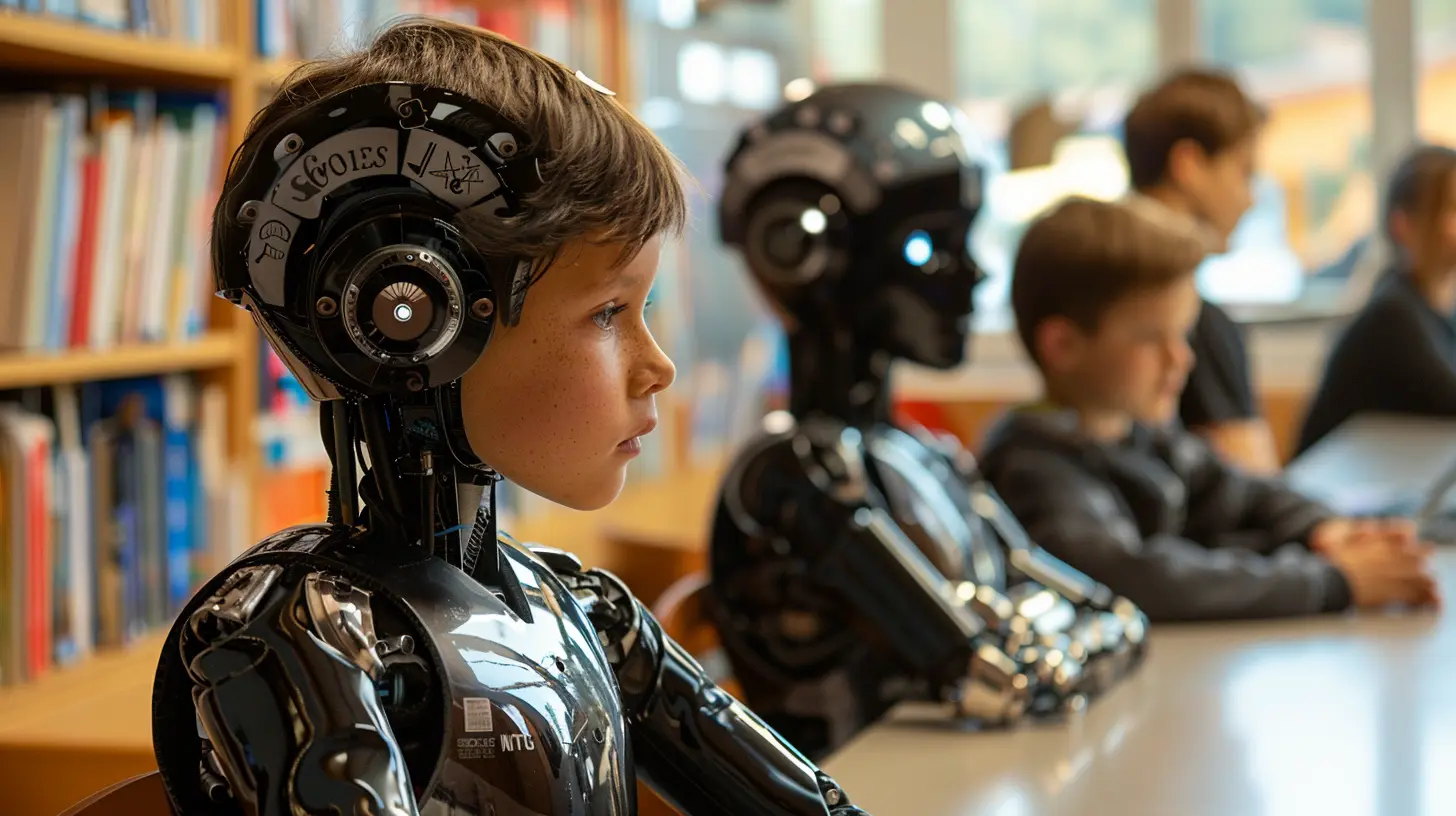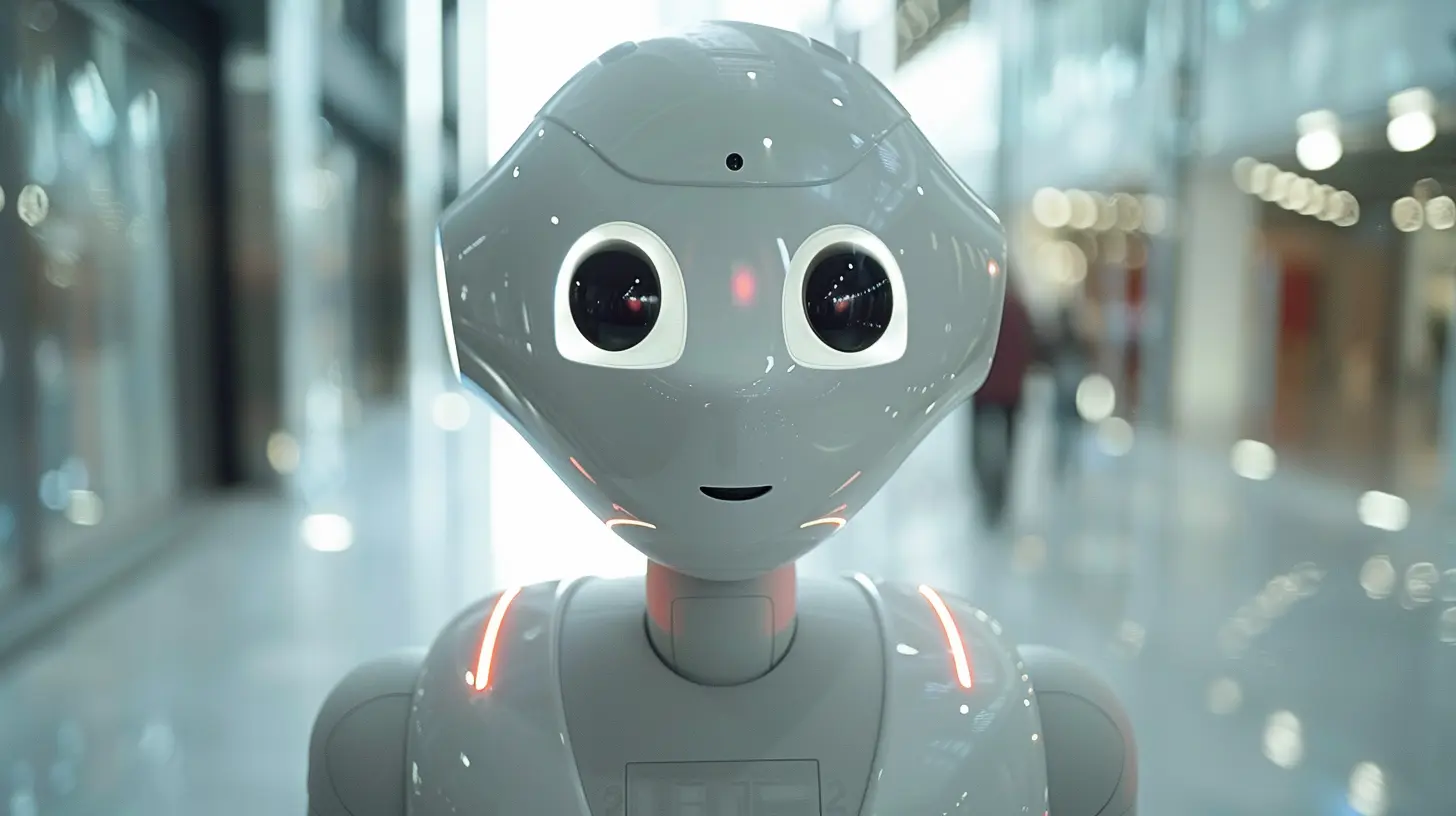The Role of Ethics in Artificial Intelligence Education
26 November 2025
Artificial Intelligence (AI) is no longer a concept confined to science fiction or high-tech labs. It's everywhere, shaping industries like healthcare, finance, transportation, and even education itself. From Siri on your phone to self-driving cars, AI is changing the way we live, work, and learn. But just because we can create these intelligent systems, should we? And if we do, how do we ensure they align with our ethical standards? That’s where the role of ethics in Artificial Intelligence education becomes crucial.
In this article, we’ll dive into why ethics is not just an accessory but a fundamental component of AI education. We'll explore what ethical dilemmas AI presents, how universities and institutions are addressing them, and why it's essential for future AI professionals to be well-versed in ethical principles.

Why Ethics in AI Education Is Non-Negotiable
Let’s start with the basics: What is ethics? In simple terms, ethics is a system of moral principles that guide our decisions and actions. Now, why does this matter in AI? Well, when we talk about AI, we’re not just discussing technology. We're talking about machines that can make decisions—decisions that can have a profound impact on people’s lives.Imagine this: You’re driving a self-driving car, and suddenly, the car has to make a choice between hitting a pedestrian or swerving into a tree, potentially harming its passengers. How should the AI decide? What value does it place on human life? These are ethical questions, and they can't be answered solely by code or algorithms.
AI developers, engineers, and data scientists are often the ones making those decisions behind the scenes. If they’re not educated in ethics, the consequences could be disastrous. So, when we talk about AI education, we can't ignore the ethical side of it.
The Double-Edged Sword of AI
AI is a double-edged sword. On one side, it offers incredible potential to solve complex problems, from diagnosing diseases to predicting climate change. On the other side, it raises a host of ethical concerns. Here are a few examples:1. Bias in AI Algorithms
AI systems are only as good as the data they're trained on. If the data is biased, the AI will make biased decisions. For instance, an AI hiring tool that’s trained on biased historical data might favor certain demographics over others, perpetuating inequality.
2. Privacy Concerns
AI systems often rely on large amounts of personal data to function effectively. But how do we ensure that this data is being used responsibly? Who owns the data, and who gets to decide how it's used?
3. Autonomy vs. Control
If we give too much control to AI systems, what does that mean for human agency? Can we really trust machines to make decisions that are in our best interest?
These are just a few of the ethical issues that arise with AI. Without proper guidance, the development and deployment of AI could lead to unintended—and potentially harmful—consequences.

The Ethical Dilemmas in Artificial Intelligence
1. Algorithmic Bias: The Silent Discriminator
One of the most significant ethical dilemmas in AI is bias. Algorithms that power AI systems are often trained on historical data. If that data is biased—whether it's based on race, gender, age, or socio-economic status—the AI will naturally mirror those biases. This can have real-world implications, especially in areas like hiring, healthcare, and even criminal justice.Take facial recognition technology as an example. Studies have shown that facial recognition algorithms often perform poorly when identifying people of color compared to white individuals. This isn't because the AI is inherently racist, but because it was trained on a dataset that was predominantly white. The result? A system that reinforces racial biases.
2. Privacy: The Trade-Off for Convenience
Let’s face it, we love the convenience that AI brings. But at what cost? Many AI applications rely heavily on personal data to function. Think about the last time you used Google Maps, or even a fitness app on your phone. These apps collect a ton of data about you—your location, your habits, even your heart rate.The problem arises when you consider who has access to this data and how it’s being used. Do we really know what companies are doing with our information? How much control do we have over our own data? These are ethical questions that AI education needs to address.
3. Autonomy: When Machines Take Control
As AI systems become more advanced, the question of autonomy becomes more pressing. How much control should we give to machines? Should self-driving cars make life-or-death decisions? Should AI be allowed to make hiring decisions without human oversight?Autonomy in AI brings up the concept of "moral machines"—machines that can make ethical decisions. But can we really trust AI to make decisions that align with our values? This is one of the most debated ethical issues in AI, and it's something that future AI developers need to be keenly aware of.

How Ethics is Being Integrated into AI Education
So, how are educational institutions addressing these ethical dilemmas? The good news is that many universities and organizations recognize the importance of ethics in AI education. Here’s how they’re approaching it:1. Incorporating Ethics into the Curriculum
Many universities are now offering courses specifically focused on AI ethics. These courses cover topics like algorithmic bias, data privacy, and the societal impact of AI. In some cases, ethics is being integrated into broader AI and computer science courses, ensuring that students understand the ethical implications of the technology they're learning to build.For example, Stanford University offers a course called "Ethics, Public Policy, and Technological Change," which explores the ethical issues surrounding AI and other emerging technologies.
2. Interdisciplinary Learning
AI isn't just a technical field. It intersects with a range of disciplines, including philosophy, sociology, and law. To fully understand the ethical implications of AI, students need to be exposed to these different perspectives. Some universities are adopting an interdisciplinary approach to AI education, encouraging collaboration between computer science, philosophy, and social science departments.3. Case Studies and Real-World Scenarios
One of the most effective ways to teach ethics is through real-world examples. Many AI ethics courses use case studies to help students understand the practical implications of ethical dilemmas. These case studies often involve scenarios like biased hiring algorithms, autonomous vehicles, or AI in healthcare, allowing students to explore the ethical complexities of these situations firsthand.4. Ethics as a Core Competency
Some institutions are going even further by making ethics a core competency for AI professionals. This means that students are not only learning technical skills like programming and machine learning but also ethical decision-making. The goal is to create a generation of AI developers who are not only technically proficient but also morally responsible.
The Future of AI Ethics in Education
As AI continues to evolve, the ethical dilemmas it presents will only become more complex. That's why it's crucial for AI education to keep pace with these developments. Here are a few ways we can expect AI ethics education to evolve in the coming years:1. More Focus on Regulation
Regulation is a hot topic in the AI world. As AI becomes more integrated into society, governments will need to step in to regulate its use. Future AI professionals will need to understand not only the ethical implications of their work but also the legal frameworks that govern AI.2. AI Ethics for Everyone
While most AI ethics education is currently aimed at future developers and engineers, there’s a growing recognition that ethics needs to be taught to everyone—not just the people building the technology. As AI becomes more prevalent in everyday life, everyone from policymakers to the general public will need to understand its ethical implications.3. Ethics in AI Research
AI research is another area where ethics plays a crucial role. As researchers push the boundaries of what AI can do, they’ll need to consider the ethical implications of their work. Many universities are now encouraging AI researchers to include ethical considerations as part of their research process.Conclusion: Why Ethics Must Be at the Heart of AI Education
In a world where AI is becoming increasingly powerful, the importance of ethics in AI education cannot be overstated. We’re not just teaching students how to build smarter machines; we’re teaching them how to build machines that align with human values. Without a strong ethical foundation, AI could easily become a tool for harm rather than good.By integrating ethics into AI education, we can ensure that the next generation of AI professionals is not only equipped to build cutting-edge technology but also to navigate the complex ethical dilemmas that come with it. After all, technology is only as good as the intentions behind it.
all images in this post were generated using AI tools
Category:
Stem EducationAuthor:

Olivia Lewis
Discussion
rate this article
2 comments
Regina Jimenez
Great insights! Ethics in AI education is crucial for shaping responsible future innovators.
December 10, 2025 at 4:14 AM

Olivia Lewis
Thank you! I completely agree—embedding ethics into AI education is essential for nurturing responsible innovators.
Geneva Marks
Great article! Emphasizing ethics in AI education is crucial for shaping responsible innovators. By instilling a strong ethical foundation, we empower future generations to navigate the complexities of technology with integrity and ensure that AI benefits society as a whole.
November 26, 2025 at 11:37 AM

Olivia Lewis
Thank you for your thoughtful comment! I completely agree—instilling ethical values in AI education is essential for fostering responsible innovation and societal benefit.


